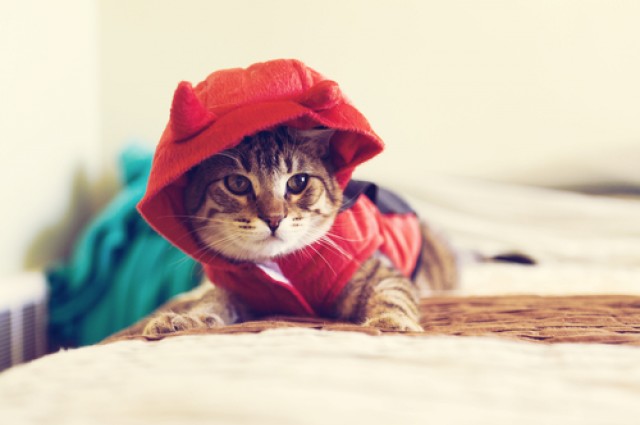Your cat may be plotting to kill you. That’s what the headlines seem to be saying, at least, and although this isn’t a particularly accurate statement (at all), some new research on the psychology of our favorite feline companions reveals that they may be far more neurotic – and resistant to being ordered around – than previously thought. The researchers have published their distinctly unusual findings in the Journal of Comparative Psychology.

It’s not been a good year for cat owners. Previous research has indicated that not only does your pet see you as an inessential landlord, but they also tend to view us as idiotic, furless cats who can’t hunt. This new study, led by the Bronx Zoo and researchers at the University of Edinburgh, has compared the domestic cat (Felis silvestris catus) to the Scottish wildcat (Felis silvestris grampia), clouded leopard (Neofelis nebulosa), snow leopard (Panthera uncia), and African Lion (Panthera leo), and has essentially concluded that domestic cats are like miniature lions in terms of their overarching personality.
Each of the study’s species has been given a variety of personality types from the Five-Factor Model. This type of psychometric categorization is normally used by some mental health professionals to describe human personalities, but here it's been co-opted for more feline creatures. The researchers note that comparing human personality to non-human animals helps to improve our understanding of the evolution of certain psychological characteristics.
As you may have guessed, there are five categories: openness (general appreciation for new information and experiences), conscientiousness (roughly analogous to self-discipline), extraversion (breadth of experience, as opposed to depth), agreeableness (concern for social harmony), and neuroticism (tendency to experience stress and negative emotions), each with their own subsets.
Each of the chosen species was observed in captivity; the researchers categorized each of the hundreds of feline subjects’ affinity for each of the five personality types (and their subsets) on a seven-point scale. A domestic cat apparently shows dominance, impulsiveness (the negative equivalent to conscientiousness) and neuroticism – exactly that of the African lion.
As the domestic cat evolved from the African wildcat, it was expected by the researchers that the Scottish wildcat and the domestic variant would show the most similar personalities, but no: you’ve got a tiny lion in your house. This does seem to suggest that cats are – generally speaking – quick-to-anger control-freaks that act without forethought.
There are some obvious limitations with this study, however: only cats in captivity were looked at, and the human personality structure may apparently fit primates, but it might not necessarily be compatible with cats.
Either way, none of this research suggests that your cat is plotting to kill you. “Cats don't want to bump you off,” said lead researcher Marieke Gartner, from the University of Edinburgh, as reported by CNET. Although, based on this study, it looks like the Scottish wildcat – with its mix of dominance, agreeableness, and conscientiousness – might make for a more amiable pet.
Fuente: www.iflscience.com
